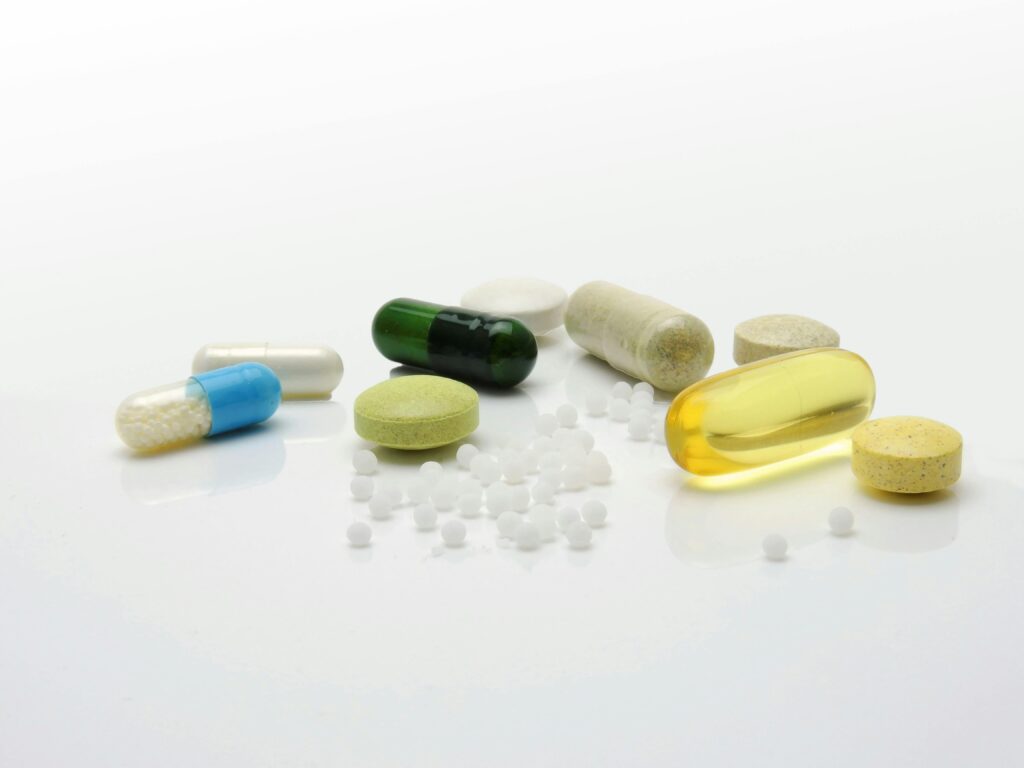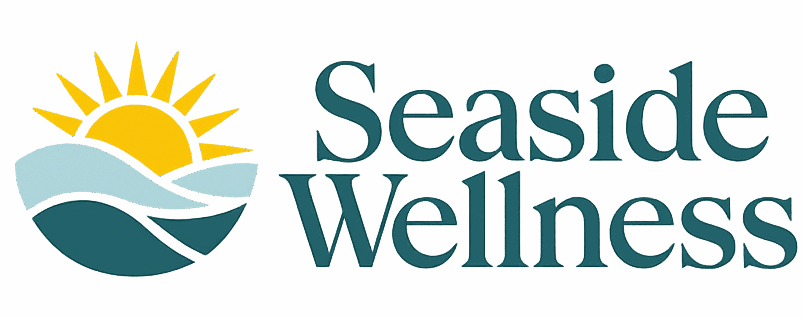Prescription Drug Addiction Rehab Program in Florida
Prescription drug addiction is one of the fastest-growing substance use problems in the United States. Medications like opioids, benzodiazepines, stimulants, and sedatives are often prescribed to treat legitimate health conditions, but misuse can quickly lead to dependence and addiction. At Seaside Wellness in West Palm Beach, we provide safe, medical detox and comprehensive care for individuals ready to break free from prescription drug abuse and begin lasting recovery.
Prescription drug addiction is on the rise, affecting millions across the U.S. At Seaside Wellness, we help clients safely detox from opioids, benzos, stimulants, and other medications, offering personalized care and long-term recovery support.


Understanding opioid abuse and Its Impact
What is prescription drug Addiction?
Prescription drug addiction occurs when medications meant to treat medical conditions are misused, taken in higher doses, more frequently, or without a prescription. Commonly abused drugs include painkillers (like oxycodone and hydrocodone), anti-anxiety medications (such as Xanax or Valium), stimulants (like Adderall and Ritalin), and sleep medications. According to the National Institute on Drug Abuse (NIDA), more than 14 million people in the U.S. reported misusing prescription psychotherapeutic drugs in the past year, making it one of the most widespread substance use problems today.
Because these substances are prescribed by doctors, many people underestimate the risks. However, prescription drug abuse can cause tolerance, physical dependence, and serious withdrawal symptoms when use stops. Left untreated, it can lead to dangerous health complications, overdose, and even death. Understanding how prescription drugs affect the brain and body is the first step toward seeking help and beginning the recovery journey.
Signs and Symptoms of prescription drug Addiction
Recognizing the signs of prescription drug addiction early can make a life-saving difference. While symptoms vary depending on the drug type (opioids, benzodiazepines, stimulants, or sedatives), there are common red flags to watch for:
Physical symptoms
- Drowsiness, dizziness, or confusion
- Slurred speech or poor coordination
- Dilated or pinpoint pupils
- Nausea, constipation, or changes in appetite
- Restlessness or insomnia
Behavioral symptoms
- Taking higher doses than prescribed
- “Doctor shopping” to get multiple prescriptions
- Running out of medication early
- Borrowing or stealing prescriptions
- Withdrawing from family and friends
Psychological symptoms
- Intense cravings for the medication
- Mood swings, irritability, or anxiety
- Depression or loss of interest in normal activities
- Poor concentration and memory problems
If these signs are present, it may indicate prescription drug misuse has turned into a dependency. Professional detox and treatment are critical to safely break the cycle of addiction.
Understanding the Risks of prescription drug Misuse
Misusing prescription drugs carries serious health risks. While some effects appear quickly, others develop over time and can have lasting consequences. Here are some of the most common consequences:
Short-term effects
- Drowsiness and confusion
- Slurred speech and poor coordination
- Nausea, constipation, or loss of appetite
- Increased heart rate or blood pressure (stimulants)
- Mood swings, irritability, or anxiety
- Risk of overdose, especially with opioids and benzos
Long-term effects
- Physical dependence and painful withdrawal symptoms
- Memory problems and poor concentration
- Organ damage (liver, kidneys, or heart)
- Increased risk of depression and other mental health issues
- Social and financial problems from continued misuse
- Life-threatening overdose or death
Prescription drug addiction is not only dangerous, it can become fatal without proper treatment. Early intervention and professional detox are key to preventing long-term damage.
Get started today
Prescription drug Withdrawal and Why Professional Detox Is Essential
When someone dependent on prescription drugs suddenly stops using them, the brain and body struggle to function without the substance. Because many prescription medications directly affect the central nervous system, quitting abruptly can throw the body into shock, leading to painful withdrawal symptoms and overwhelming cravings. This is what makes prescription drug withdrawal not only uncomfortable but also dangerous without professional medical supervision.
What happens during prescription drug withdrawal?
Prescription drugs, including opioids, benzodiazepines, and stimulants, alter the brain’s natural chemistry. Over time, the body adapts and becomes dependent on these substances to feel normal. When use stops suddenly, the nervous system rebounds, causing severe withdrawal symptoms such as anxiety, sweating, nausea, body aches, and insomnia. Depending on the type of drug, symptoms can range from flu-like discomfort to seizures or intense psychological cravings. Because withdrawal can last for days or weeks, relapse is very common without medical care. This is why professional prescription drug detox is the safest and most effective first step in recovery.
Here are the three main phases of prescription drug withdrawal:
Early Withdrawal (6–24 hours after last dose)
- Anxiety, irritability, and restlessness
- Sweating, muscle aches, and fatigue
- Cravings begin to appear
Acute Withdrawal (1–5 days)
- Nausea, vomiting, or diarrhea
- Insomnia, chills, and mood swings
- Strong psychological or physical cravings
- In some cases (especially with benzos), seizures or panic attacks
Prolonged Withdrawal (up to 1–2 weeks or more)
- Ongoing fatigue and sleep problems
- Depression, anxiety, or difficulty concentrating
- Persistent cravings that increase the risk of relapse
Because prescription drug withdrawal can be so intense, many people relapse without medical support. That’s why you should seek professional help to support you during this complicated process.
trust Seaside to detox safely from prescription drug
Because prescription drug withdrawal can impact both the body and mind, attempting to quit without medical support is risky. At Seaside, our prescription drug detox program combines 24/7 medical monitoring, evidence-based care, and support to keep clients safe and stable. We help you lay the foundation for lasting recovery.
Medical Safety
Our clinical team provides around-the-clock monitoring and medication-assisted treatment (MAT) when necessary, helping to manage severe withdrawal symptoms such as seizures, dehydration, or mood instability.
Comfortable Environment
Seaside offers a calm, supportive setting where clients can rest and recover away from everyday triggers, reducing stress and making detox safer and more manageable.
Personalized Treatment
Every client receives a tailored detox plan based on their specific prescription drug use, health history, and mental health needs. MAT is provided when appropriate to help with withdrawal.
Seamless Transition to Rehab
After detox, clients can step directly into residential treatment, outpatient care, or other levels of support within our treatment network, ensuring continuity of care that supports long-term sobriety.
Treatment Options for prescription drug Addiction
At Seaside, we recognize that every client’s recovery journey is unique. That’s why we provide multiple levels of care, each designed to meet different needs and stages of recovery. Whether someone requires the structure of residential treatment or is ready for less supervision, our programs ensure the right support at every step.
Substance Abuse Residential Inpatient
Dual Diagnosis and prescription drug Addiction
Prescription drug addiction often occurs alongside mental health challenges such as depression, anxiety, or trauma. At Seaside, our dual diagnosis treatment addresses both conditions simultaneously, ensuring clients receive care for their whole well-being. Ignoring one condition can make recovery harder and increase the risk of relapse, which is why we take an integrated approach.
Our clinical team develops individualized treatment plans that combine medical detox, evidence-based therapy, and mental health support. By treating both addiction and underlying disorders, clients build the tools needed for long-term stability, resilience, and a healthier future.



Expert addiction & Mental health rehab in Palm Beach County
Why Choose Seaside for prescription drug Addiction Treatment?
At Seaside Wellness, we understand that prescription drug addiction is complex and often very different from illicit substance use. Because these medications are legal and widely available, many people underestimate their risks until dependence develops. Our programs go beyond standard addiction treatment, providing both immediate stabilization and long-term recovery support tailored to the unique challenges of prescription drug dependence.
We combine expert medical care with 24/7 monitoring, evidence-based therapies, and dual diagnosis treatment for clients with co-occurring mental health conditions. Every treatment plan is customized, ensuring that safety and emotional healing are prioritized from day one. Our team of experts helps clients manage withdrawal, address the root causes of addiction, and build sustainable coping skills for life after rehab.
Our modern Palm Beach County facility offers a safe, supportive environment away from daily stressors and triggers. With seamless transitions into residential care, outpatient programs, and ongoing aftercare planning, Seaside ensures that no one has to face recovery alone.
About us
Therapies
Most frequently asked questions
What is prescription drug addiction?
Prescription drug addiction occurs when someone misuses medications, such as opioids, benzodiazepines, or stimulants, and becomes physically or psychologically dependent on them. This often starts with legitimate use but can quickly progress into misuse, cravings, and compulsive drug-seeking behaviors.
Which prescription drugs are most commonly abused?
The most commonly abused prescription drugs include opioid painkillers (OxyContin, Vicodin, Percocet), benzodiazepines (Xanax, Valium, Ativan), and stimulants (Adderall, Ritalin). These medications carry a high risk of dependence when not taken as prescribed.
What are the signs of prescription drug addiction?
Warning signs include taking higher doses than prescribed, running out of medication early, “doctor shopping” for new prescriptions, mood swings, poor concentration, physical withdrawal symptoms, and neglecting responsibilities.
How does prescription drug addiction affect the brain?
Prescription drugs alter brain chemistry by overstimulating reward pathways or suppressing nervous system activity. Over time, the brain adapts and requires the drug to function normally, making quitting extremely difficult without professional support.
What are the short-term effects of prescription drug misuse?
Short-term effects may include drowsiness, confusion, slowed breathing (opioids), anxiety relief (benzos), or increased energy and focus (stimulants). Misuse, however, often leads to dangerous side effects like overdose, heart problems, or respiratory failure.
What are the long-term risks of prescription drug addiction?
Long-term use can cause organ damage, memory loss, severe anxiety or depression, sleep disorders, and higher risk of overdose. Addiction also impacts relationships, career stability, and overall quality of life.
Can you overdose on prescription drugs?
Yes. Overdosing on opioids, benzodiazepines, or stimulants can be fatal. Opioid overdoses, in particular, are the leading cause of prescription drug-related deaths. Overdose symptoms may include slowed breathing, unconsciousness, seizures, or cardiac arrest.
What happens during prescription drug withdrawal?
Withdrawal symptoms vary depending on the drug but may include insomnia, anxiety, sweating, muscle pain, nausea, tremors, and intense cravings. Withdrawal can be dangerous without medical detox, especially with opioids and benzodiazepines.
Why is medical detox important for prescription drug addiction?
Medical detox provides 24/7 supervision and medications to ease withdrawal symptoms. This ensures safety, reduces the risk of relapse, and prepares clients for the next stage of recovery. Detox is often the first essential step in treatment.
What treatment options are available for prescription drug addiction?
Treatment often includes medical detox, residential rehab, partial hospitalization programs (PHP), intensive outpatient programs (IOP), therapy, dual diagnosis treatment, and aftercare planning. Each plan is customized to the client’s needs.
How long does recovery from prescription drug addiction take?
Recovery timelines vary based on the type of drug, length of use, and individual health. Detox may take 5–10 days, but rehab programs often last 30–90 days. Long-term recovery requires ongoing therapy and relapse prevention strategies.
Does insurance cover prescription drug addiction treatment?
Most major insurance providers cover some or all costs of prescription drug rehab, including detox and therapy. At Seaside, our admissions team can verify insurance benefits and explain coverage options to make treatment more accessible.
100% confidential, free assessment
Start your recovery journey from opioid today
Recovery from prescription drug addiction begins with a single step: asking for help. At Seaside, our admissions team is here 24/7 to answer your questions, explain treatment options, and guide you through the next steps.
Fill out the confidential form below, and one of our specialists will contact you directly. Whether you’re looking for detox information, program details, or support for a loved one, we’ll provide clear answers and compassionate guidance. Your journey to recovery can start right now. Reaching out is private, secure, and could save a life.
